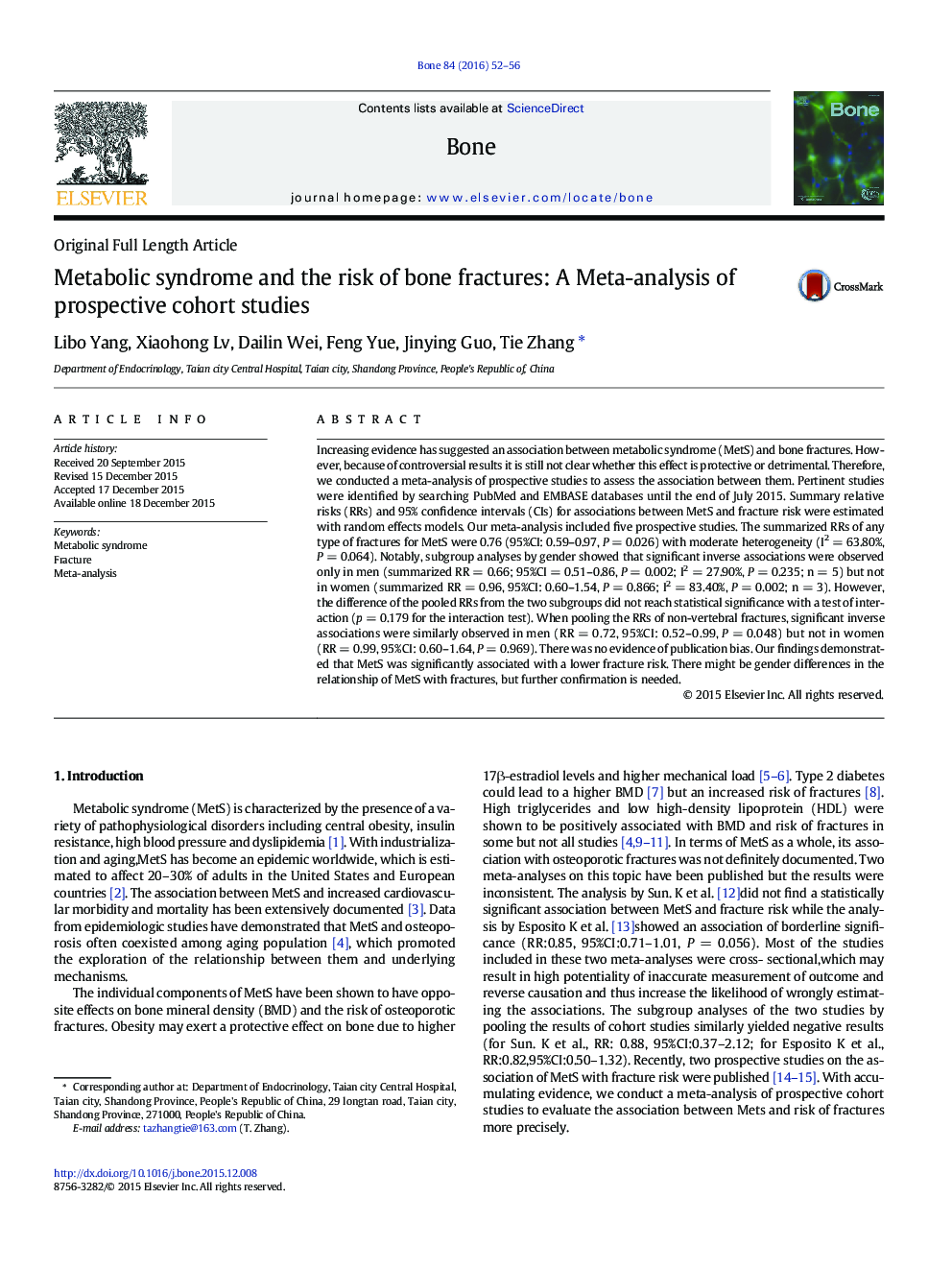| Article ID | Journal | Published Year | Pages | File Type |
|---|---|---|---|---|
| 5889413 | Bone | 2016 | 5 Pages |
Abstract
Increasing evidence has suggested an association between metabolic syndrome (MetS) and bone fractures. However, because of controversial results it is still not clear whether this effect is protective or detrimental. Therefore, we conducted a meta-analysis of prospective studies to assess the association between them. Pertinent studies were identified by searching PubMed and EMBASE databases until the end of July 2015. Summary relative risks (RRs) and 95% confidence intervals (CIs) for associations between MetS and fracture risk were estimated with random effects models. Our meta-analysis included five prospective studies. The summarized RRs of any type of fractures for MetS were 0.76 (95%CI: 0.59-0.97, P = 0.026) with moderate heterogeneity (I2 = 63.80%, P = 0.064). Notably, subgroup analyses by gender showed that significant inverse associations were observed only in men (summarized RR = 0.66; 95%CI = 0.51-0.86, P = 0.002; I2 = 27.90%, P = 0.235; n = 5) but not in women (summarized RR = 0.96, 95%CI: 0.60-1.54, P = 0.866; I2 = 83.40%, P = 0.002; n = 3). However, the difference of the pooled RRs from the two subgroups did not reach statistical significance with a test of interaction (p = 0.179 for the interaction test). When pooling the RRs of non-vertebral fractures, significant inverse associations were similarly observed in men (RR = 0.72, 95%CI: 0.52-0.99, P = 0.048) but not in women (RR = 0.99, 95%CI: 0.60-1.64, P = 0.969). There was no evidence of publication bias. Our findings demonstrated that MetS was significantly associated with a lower fracture risk. There might be gender differences in the relationship of MetS with fractures, but further confirmation is needed.
Related Topics
Life Sciences
Biochemistry, Genetics and Molecular Biology
Developmental Biology
Authors
Libo Yang, Xiaohong Lv, Dailin Wei, Feng Yue, Jinying Guo, Tie Zhang,
